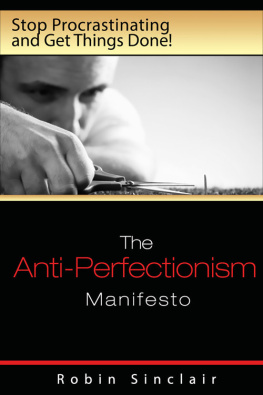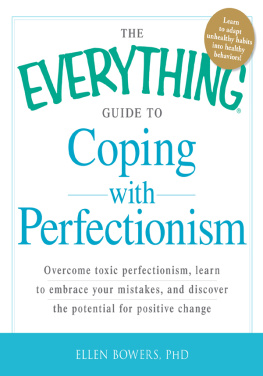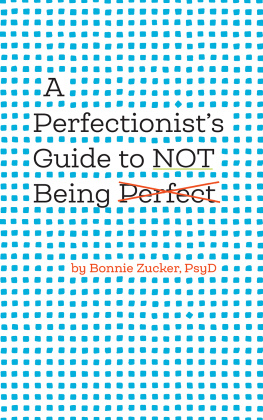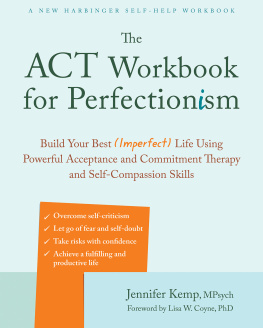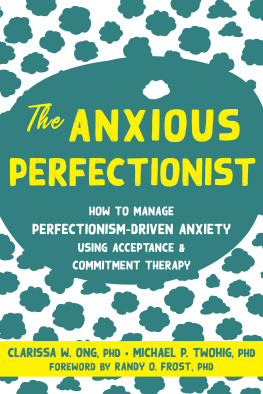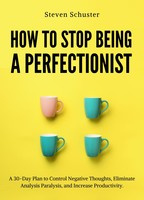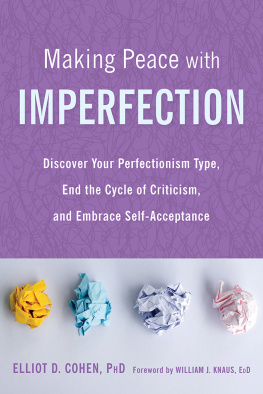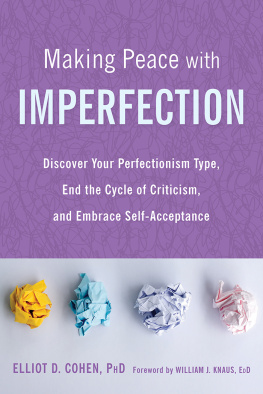The Anti-Perfectionism Manifesto
Stop Procrastinating and Get Things Done!
2015 - Robin Sinclair
Introduction
Do you still make every effort, experiencing a hard time, working yourself to exhaustion to attain some ideal state of achievement that always seem to get out of your reach? Do you beat yourself up because you just can't get there regardless of how hard you try?
You can stop blaming yourself. Blame it on Plato!
Mankind was doodling along just great, until an old Greek called Plato came up with a devilish concept that torments us to this day; The idea of perfection!
Perfectionism is the belief that perfection can and must be obtained. Perfectionism is a belief that anything significantly less than best is completely unacceptable! Countless business men worldwide today may be characterized, and are usually self-described, perfectionists.
How has perfectionism been a good device in your life? Where has it gotten in the way? It is a neurotic compulsion to fix up tasks repetitively till they truly are precisely what he wanted. A nearly bottomless pit of energy is expended to complete exactly what he wants to get the task done, even when in reality your day is tightly scheduled and finite.
To be a perfectionist can also be a true blessing. The drive to attain excellence can push you to accomplish fantastic things. Occasionally, however, it can be a barrier or perhaps in extreme cases perfectionism can create a barrier that stops an individual from even embarking upon a challenge. Steve Jobs wanted excellence that pressed him and numerous others to create an excellent number of extremely innovative devices that countless of us rely on these days.
We love and appreciate the outcomes of his perfectionism.
Other perfectionists can be a lot less efficient and don't produce any yield or results. For some individuals their perfectionism stops them from even getting started on a job. They want everything to be so perfect that their objectives become so big that they usually do not even reach the starting line in the race.
Perfectionism can be a driving force to achieve your goals, but in the fast paced realm of businesses, it really is a double-edged sword. It may serve to press forward the business, or it may serve to ruin it. The entrepreneur need to learn how exactly to weld this weapon well to prosper.
The purpose of this book is to motivate; to avoid these maladaptive behaviors and also to invest their quantity of time in taking action instead of just thinking about it.
Entrepreneurs invest countless hours putting together products for consumers all around the globe. They are typically needed to create a huge quantity of products and services in a brief amount of the time. A significant hitch in the system arises when the company owner buys in to the idea that all products and services need to be flawlessly perfect before it can be released or before another service or item can be started.
Time Management
Time management suggestions might attract the perfectionist in you due to your drive to stand out. But should you constantly aim to be the best at every single, little thing? If you understand first-hand that perfectionism can really disrupt your productivity as you 'd If you regularly expect for perfection, you'd come to understand first-hand that perfectionism can in fact conflict with what actually needs to get done on a daily basis!
That isn't really truly the only problem with having overly high requirements. In reality, non-perfectionists might achieve more in life with substantially less wear and tear: think of the missed dinners, the struggling sleep, the way in which dissatisfaction with yourself disrupts your ability to have fun and spend quality time with family and friends. You cannot get back the precious minutes you have lost.
Law of Approximations
If someone takes a survey of several of the most successful companies in the world today, they will quickly observe that this is simply not the way that they work. Successful companies release their
products before they are "perfect," simply because they know that the product will progress along the line towards excellence at a much quicker speed if consumers are involved with the procedure.
Consider it this way, how many minds are better at refining a product, 1 or 2 people Vs. 1 or 2 thousand? By overcoming this concept of perfectionism, the entrepreneur can actually increase their revenues and reduce their time commitment, while at the very same time producing a much better product. The best of both worlds!
The temptation for lots of business owners today is always to try to get everything right on the first try. This just defies logic for lots of reasons. The first, which is the fact that it entirely negates the major underlying learning theories. That is, people pick up knowledge from repetition and from making errors. This is known as the law of approximations. Products improve as they go towards perfection, one-step at a time, removing the flaws.
Just as if you would reward children for showing anything that resembles or approximate good behaviors, so does the customer reward the company owner if they approximate a great product (or at least those that show great potential when the bugs have been fixed). Customers are forgiving and want to be engaged within the producing of a product. Consumers buy-in to a product when they are allowed or enabled to provide feedback. To feel part of the procedure, that translates directly into earnings for the business.
Perfection Is In The Eye Of The Beholder
A manufacturer cannot know what a perfect product is up until he has actually gotten feedback via the consumers.
The goal is this: to discharge items in a prompt manner as to receive consistent feedback from consumers. This may permit the producer to get a better picture of what the consumer thinks is ideal, and to adjust accordingly. If product does not hit the market in a big enough way, little feedback can then be put back in the production system. Just like the old theory of priming the pump. One had to put a little water inside the well pump to get it to pump out more water in exchange. Feedback, good and bad are all crucial!
The exact same concept works in the info product world. It is perfect to release an item, get some feedback, upgrade the product and release again. And on occasion even pick up from the feedback you obtained from another item to help when you look at the production of another product.
The following paragraphs will serve to clear up several of the common perfectionists traps that entrepreneur usually fall victim to. It isn't always simple to recognize them, especially in oneself.
1. Understand why you need to be a perfectionist.
Look back and identify scenarios which contributed to forming your perfectionist mentality. Could it be because people incorrectly determined your capabilities and you also feel you have something to prove yourself?
2. Understand objectives are directions and never absolutes
Accept your objectives as directions to operate towards and not absolutes that you simply need to attain.
3. Respect and love yourself.
Are you currently rebuking yourself over something which could have done better? Release all of these negative ideas in your mind. You did what you could within that particular context. Acknowledge you are a person with your own integrity versus subjecting yourself to all or any the self-abuse and self-depreciation. Give yourself the respect you deserve.
4. Take a look at the big picture.
Begin to see the forest for the trees. Use prioritization strategies such as Time Management programs to assist you sieve out of the activities which you ought to do and activities which you must eliminate. For things you have to partake in, use the 80-20 concept to help you evaluate when to stop. Whenever a certain task is taking a lot of time, it really is the time to ask yourself 'Does this make an actual difference in the accomplishment of the goal?'. If it doesn't, get rid of it.
Next page
